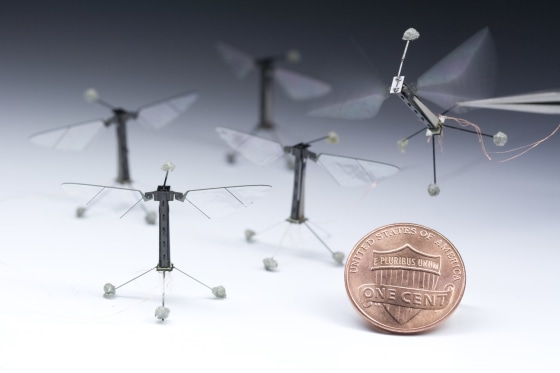A tiny "RoboBee" bot may soon get laser-powered vision courtesy of the University at Buffalo. This ultra-light robot, a collaboration among multiple universities, is the same size as an actual insect and uses a similar technique to fly through the air or swim around underwater — but at the moment, it's blind. Even a very small camera unit would weigh down the robot, so UB computer scientist Karthik Dantu wants to equip it with a super-small laser range detector.
Related: Tiny Gecko-Inspired Robots Carry Loads Over 100 Times Their Weight
This "micro-LIDAR," short for light detection and ranging, would send out pulses of light and measure the time it takes for them to return to an on-board sensor. That would give a rough idea of the proximity of nearby objects.
"Essentially, it’s the same technology that automakers are using to ensure that driverless cars don’t crash into things," said Dantu in a UB press release.
Related: Australia Deploys Killer Robots to Terminate Reef-Eating Starfish
Dantu and a team at the University of Florida aim to shrink the technology down so it will fit on the diminutive RoboBee and allow it to avoid objects or make safe landings on its own. Such agile and independent robots could be of use in disaster areas and various industries, and a reduced-size LIDAR sensor would be welcome on its own as well.

